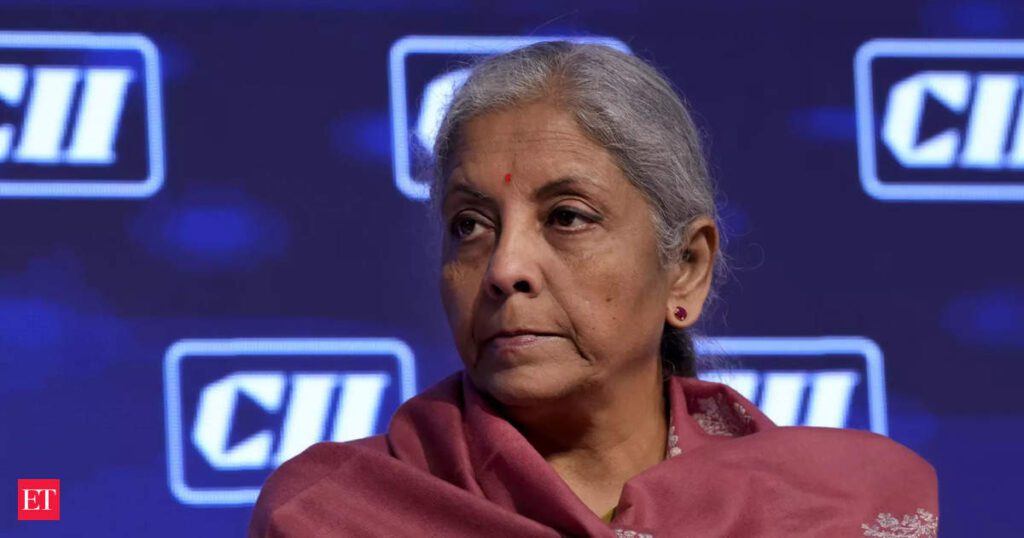Finance Minister Criticizes Congress on Constitutional Amendments and Women’s Rights
In a recent address in the Rajya Sabha, Finance Minister Nirmala Sitharaman accused the Congress party of executing significant amendments to the Indian Constitution primarily to benefit the "family" and "dynasty." She labeled the party as "anti-women" for failing to pass the Women’s Reservation Bill due to pressures from coalition partners.
Economy and the Congress Legacy
Commencing her discussion on the ‘Glorious Journey of 75 Years of the Constitution of India’, Sitharaman, a senior leader of the Bharatiya Janata Party (BJP), lamented that the economic policies of past Congress governments over five decades did not adequately bolster the Indian economy. "Each time the Congress shamelessly amended the Constitution, it was only to benefit the family and protect those in power,” she asserted.
Highlighting numerous amendments, including the 42nd Constitutional Amendment and one concerning the Shah Bano case, Sitharaman conveyed that these changes were assessed against four key criteria: economic benefit, social intent, due process, and adherence to the constitutional spirit. She concluded that these amendments served more to uphold the interests of those in power rather than promoting democracy.
Freedom of Expression
Sitharaman also reflected on the curtailment of freedom of speech during Congress rule, recalling the imprisonment of celebrated lyricist Majrooh Sultanpuri and actor Balraj Sahni in 1949. She emphasized that the party’s history of suppressing dissent extended beyond these incidents, highlighting the banning of the film ‘Kissa Kursi Ka’, which criticized former Prime Minister Indira Gandhi and her son.
Women’s Representation and Empowerment
During her remarks, the Minister pointed to Congress’s failure to support the Women’s Reservation Bill, which had cleared the Rajya Sabha in 2008 but was not tabled in the Lok Sabha due to opposition from alliance members. She declared that this reluctance showcased Congress’s anti-women stance, as they prioritized political power over women’s rights. "Rajiv Gandhi had a majority with 426 Lok Sabha members yet lacked the conviction to push through the Women’s Reservation Bill," she noted, underscoring a historical pattern of neglect toward women’s empowerment issues.
Sitharaman criticized the Muslim Women Protection of Rights on Divorce Act, 1986, enacted by Congress, which she argued denied Muslim women their rights to alimony, reinforcing her claim of the party’s disregard for women’s rights.
In contrast, she highlighted the Modi government’s commitment to women’s issues with the introduction of the ‘Nari Shakti Vandan Adhiniyam’ during the inaugural session at the new Parliament building. "The BJP has always focused on promoting women’s reservation and increasing female participation in politics,” she stated, sharing her personal experience as a beneficiary of such initiatives.
Celebrating the Constitution
At the outset of her speech, Sitharaman paid tribute to the 389 members of the Constituent Assembly, including 15 women, who crafted the Constitution amidst significant challenges. She expressed pride in India’s enduring democratic framework, stating, "The Constitution of India has withstood the test of time. Today we are proud of how India’s democracy is evolving."
Reflecting on the 75th anniversary of the Constitution, she called for a renewed commitment to the values enshrined in this foundational document, emphasizing its uniqueness compared to several post-World War II nations that have altered their constitutions drastically.
As the Rajya Sabha prepares for a continued debate on these pressing issues, Chairman Jagdeep Dhankhar assured that time would not limit speakers wishing to share their views, further emphasizing the importance of this discussion in shaping India’s future.


